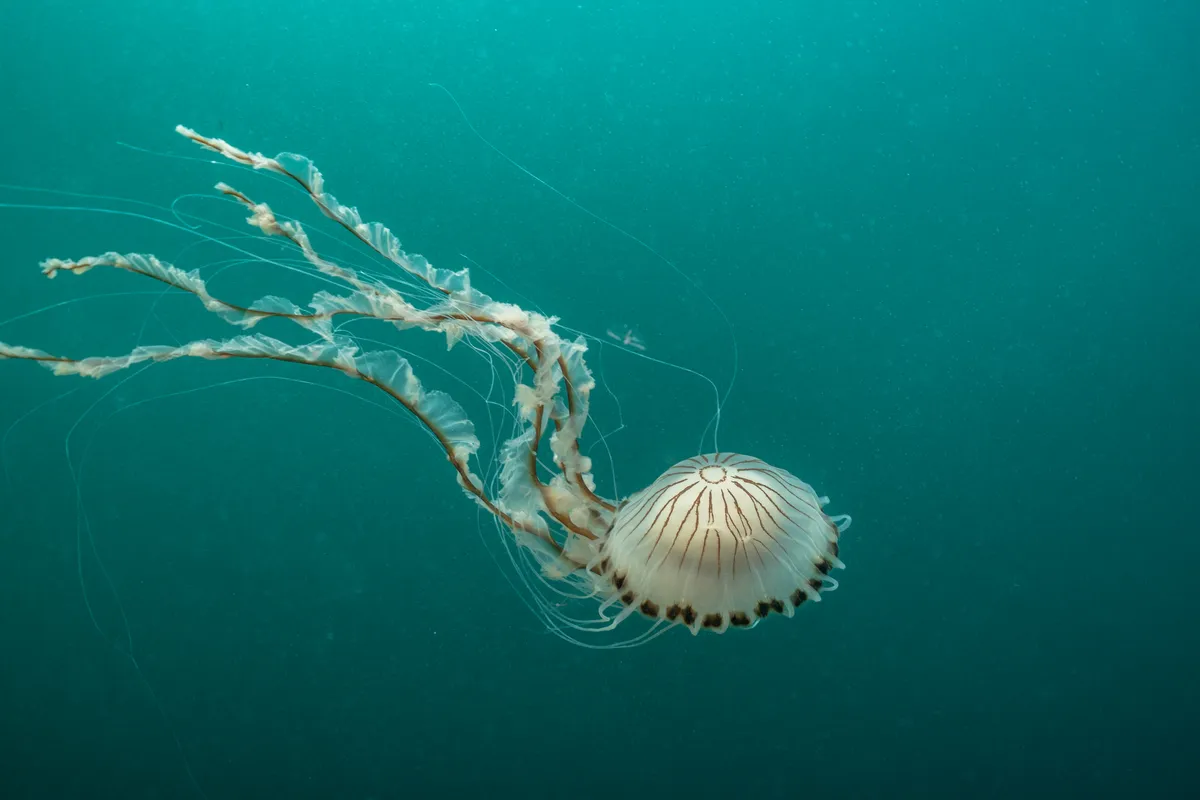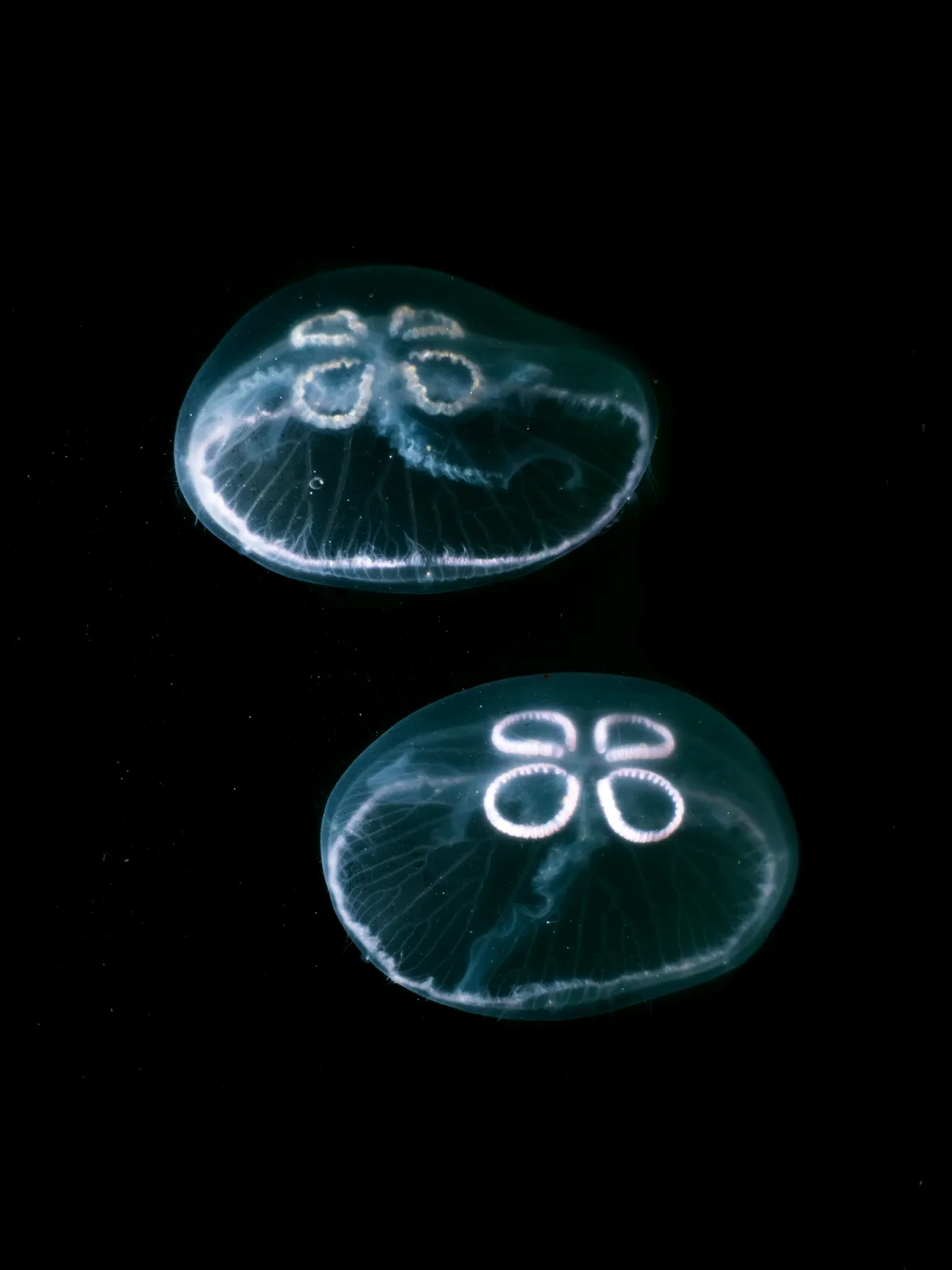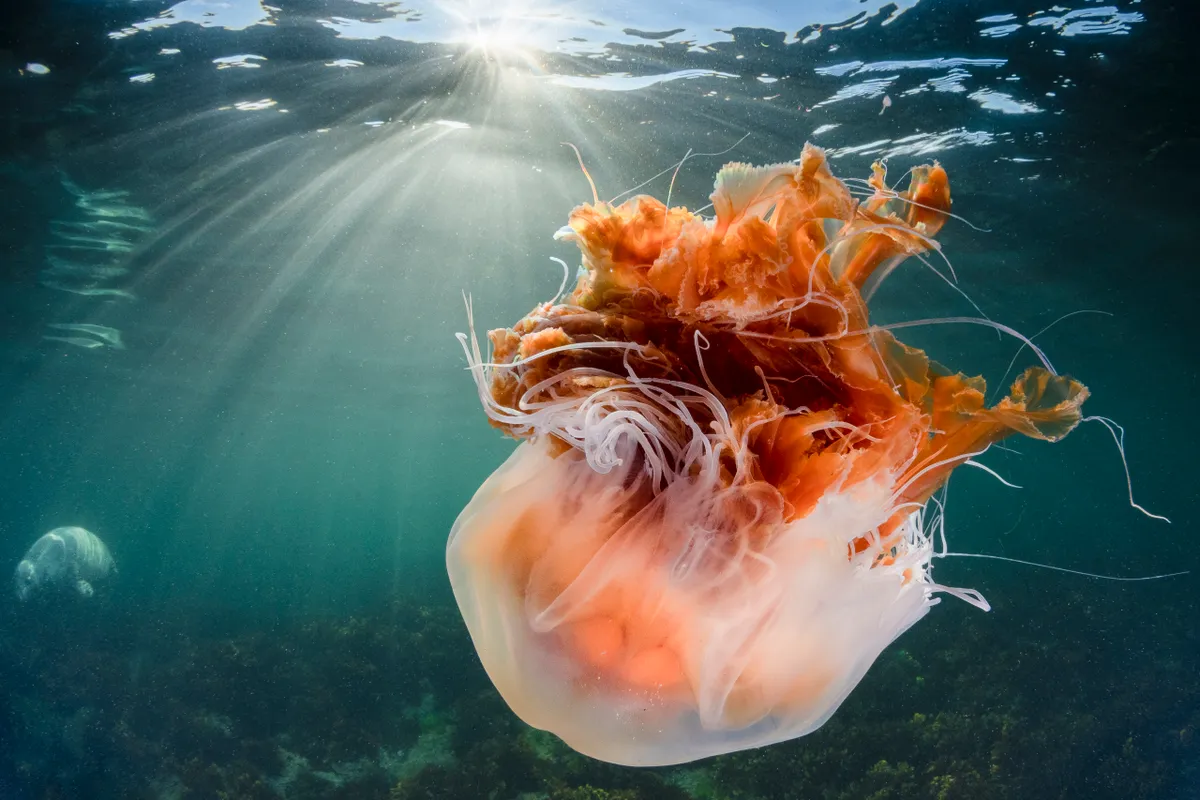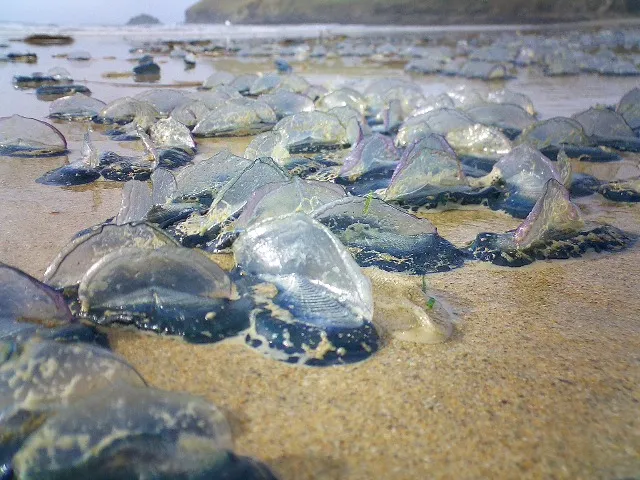Beachgoers are being asked by the Marine Conservation Society to share their sightings of jellyfish and turtles as the temperatures heat up and both species head to our shores.
Jellyfish tend to arrive in the UK's waters in spring and summer when the temperature begins to rise. A food chain quickly develops, with turtles feeding on jellyfish, which in turn helps control populations.
The presence of jellyfish in the UK's seas is particularly beneficial for those hoping to catch a glimpse of one of the world's seven marine turtle species, six of which have previously been spotted in our oceans. Meanwhile, there are eight species jellyfish, or jellyfish-like species, which you might see in the UK.
The leatherback turtle – the biggest of all the sea turtles – is the most common sighting in UK waters and currently has a 'vulnerable' conservation status.
The charity has been logging reports of jellyfish and turtle sightings in the UK since 2003.
To report a sighting of a jellyfish or turtle, visit the Marine Conservation Society website.
Jellyfish species to look out for in the UK
Compass jellyfish (36% of reported sightings)

Moon jellyfish (17% of reported sightings)

Lion's mane jellyfish (15% of reported sightings)

Barrel jellyfish (14% of reported sightings)

Portuguese Man o' War (6% of reported sightings)

Mauve stinger (2% of reported sightings)

By the wind sailor (1% of reported sightings)

